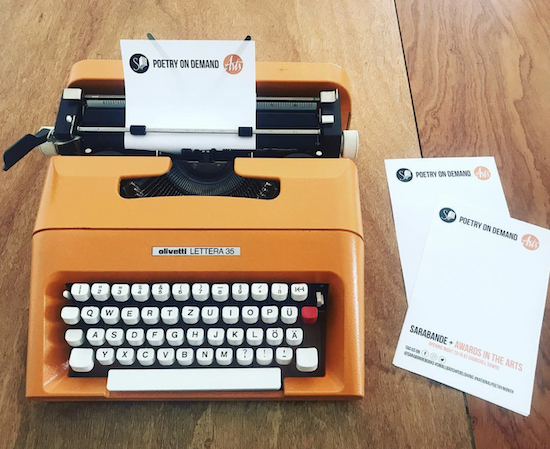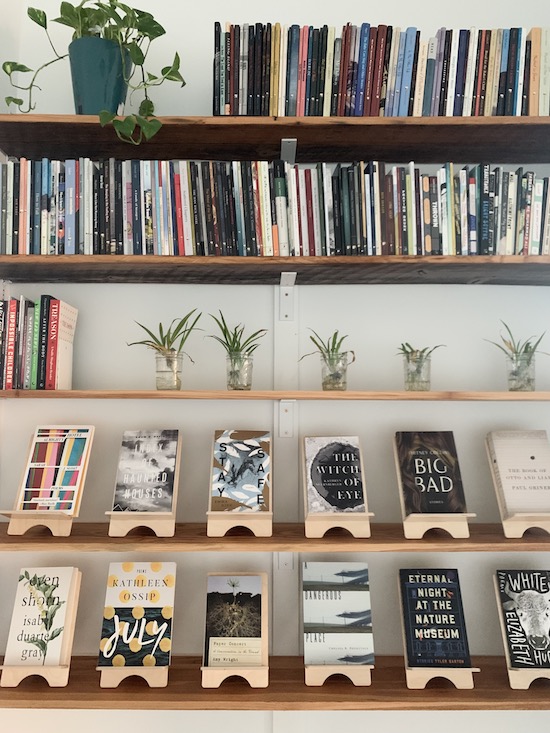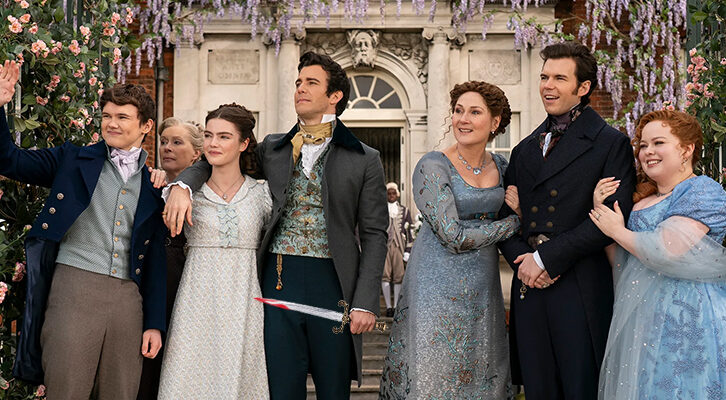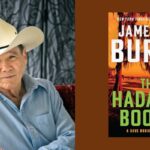
Interview with an Indie Press: Sarabande Books
On What It Means to Support Experimental Work
A nonprofit press founded in Louisville, Kentucky, in 1994, Sarabande Books has the mission of “creating lasting editions that honor exceptional writing.” Joanna Englert, Director of Marketing and Publicity for Sarabande, answered our questions about supporting innovative work, providing a space for established writers to experiment, and the press’ upcoming projects.
*
What are some of the benefits of working at an independent press?
Each book signed is a passion project for us. When we acquire a book, it’s because we—our complete, tightly-knit team of six—really do believe in it. Being independent affords us the opportunity to publish titles we love, ones that are innovative and interesting, or perhaps more experimental than what you might see at larger presses.
And since we publish 10 to 12 titles a year, we are able to give each title unmatched attention—from acquisition to editorial to production to marketing—the full gamut. We are currently in our 28th year of existence since Sarah Gorham founded the press in 1994, and we know well by now that our books will find loving, attentive homes with readers, that they are guaranteed life beyond our office. We also see our efforts creating lasting relationships with authors; we pride ourselves on launching and lifting debut writers, many of whom stick with us for their second and third books—and beyond.
Likewise, our authors are drawn to the creative freedom and attention we offer—a pair of qualities that’s proven really attractive to established authors, as well. For instance, we’ve published nearly twenty short projects by distinguished authors through our Quarternote Chapbook Series. This series is home to Sandra Cisneros, James Tate, Mary Ruefle, Frank Bidart, Yusef Komunyakaa, and many more. From the beginning, Sarah Gorham identified a gap in the industry: there were lots of presses publishing chapbooks by new and emerging writers, but few that would specifically offer established writers the chance to publish shorter—and perhaps creatively riskier—works. It’s a delight to be able to work with these authors on such unique projects.
We love works that are fresh to us, collections that do or say something we haven’t seen before and that still electrify and excite us.
With our small team, we are also able to pitch creative ideas that we know will be heard, considered, and frequently implemented. We are always ready to listen to one another, and then roll up our sleeves and make things happen—from our free Sarabande Writing Labs programming to our Young Professionals Board to our collaborations with local artists and organizations. Being a local arts resource is not necessarily something that’s expected of a national publishing house, but our longtime home in the upper South positions us as one of a small handful of literary arts resources for our community. We value these community collaborations and relationships so much.
The list of benefits could go on and on. The point is there are lots, and we are all absolutely grateful and passionate about being here.
*
Were there any titles in particular that were game-changers for your business?
We’ve published nearly 300 titles to date, and there is immense literary worth in every single one of them. Since day one, we have intentionally published books that are formally ahead of their time, and some of these titles have significantly expanded the way our readers—and we at Sarabande—think about genre, specifically the ways in which it’s possible to mold genre within short-form works. Some titles that come to mind are T. Fleischmann’s book-length essay, Syzygy, Beauty, Jenny Boully’s (self-explanatory) Book of Beginnings and Endings, Nona Caspers’s The Fifth Woman (a novel in surrealist vignettes), and Joan Frank’s Where You’re All Going (a quartet of novellas).
Recently, we’ve also published several fiction collections that braid short stories with micro and flash fictions—Ryan Ridge’s New Bad News, Joe Sacksteder’s Make/Shift, and Tyler Barton’s Eternal Night at the Nature Museum. In 2020, we also published our first full-length, full-color book of visual poetry: Sarah J. Sloat’s Hotel Almighty.
 Photo via Sarabande Books.
Photo via Sarabande Books.
There are several titles that have also just done tremendously well in terms of reception and reach. Elena Passarello’s Animals Strike Curious Poses, for instance, has seen enormous success since its publication in 2017, earning praise in The Guardian, The New York Times, The Los Angeles Times, and more. In part because of its wide reception, it has now been translated into Italian, German, and Dutch. Other big ones are, well, really any title from Kiki Petrosino. Her collection Witch Wife was named “Best Poetry of 2017” by The New York Times (and will be coming out in a new paperback edition next summer!), and White Blood: A Lyric of Virginia (2020) won the UNT Rilke Prize and the Spalding Prize for the Promotion of Peace and Justice, was a finalist for the Hurston/Wright Foundation Legacy Award and the Library of Virginia Literary Awards, and racked up praise from The New York Times, Publishers Weekly, Library Journal, and so many others.
Perhaps more apt than calling these books “game-changers” for the press, I’d say they really showcase the relationships we cultivate with our authors, since they’ve trusted us now with multiple books. We all feel immensely honored to be trusted with the evolution of their careers!
*
Is there a particular quality, style, or other characteristic that connects the projects that you take on?
In terms of genre, of course, we publish poetry, fiction, and essay, and—at the risk of sounding like a broken record—we really do value innovative and hybrid forms within these traditional genres. We love works that are fresh to us, collections that do or say something we haven’t seen before and that still electrify and excite us in some way. It’s always been a crucial part of our mission, as well, that we publish voices and perspectives that have been historically underrepresented in the canon.
*
What are some projects you’re particularly excited about at the moment?
Oh, I’m absolutely ecstatic about the coming year’s lineup! Of course, I have to shout-out our two lead titles for the approaching summer season: Kiki Petrosino’s debut essay collection Bright: A Memoir, and Karyna McGlynn’s poetry collection 50 Things Kate Bush Taught Me About the Multiverse.
 Photo via Sarabande Books.
Photo via Sarabande Books.
Petrosino’s fifth book with us, Bright marks her foray into prose, and it is stunning. In it she alternates moments of memoir, archival research, close reading and reverie to construct a lyric meditation on growing up in a mixed Black and Italian American family. It’s truly brilliant. Truly truly truly.
50 Things Kate Bush Taught Me About the Multiverse is McGlynn’s third poetry collection, and first and foremost, I will admit that I love McGlynn’s poetry as much as I love Kate Bush. While this is a book for Kate Bush fans, certainly, it is more widely for any fans of playful, punchy poetry and 80s and 90s MTV nostalgia. (I mean—this book opens with a quote from Big Boi, and the cultural allusions only expand from there: Roxy Music, Peter Gabriel, Carrie, Interview with a Vampire…the list goes on and on.)
Our full line-up next year also includes White Bull from Elizabeth Hughey, The Man with Eight Pairs of Legs by Leslie Kirk Campbell, Dear Damage by Ashley Marie Farmer, Little Brother by Sallie Bingham, Lives by CJ Evans, a new paperback edition of Witch Wife by Kiki Petrosino, THOT by Chanté Read, and Team Photograph by Lauren Haldeman. 2022 is such a great year for Sarabande titles!
*
How do debut authors reach/pitch you?
Agents can be in touch with editors Sarah Gorham and Kristen Renee Miller. Otherwise, we run two contests each January—the Kathryn A. Morton Prize in Poetry and the Mary McCarthy Prize in Short Fiction. And we hold open reading periods each July, for writers with Kentucky ties, for essay manuscripts, and—new next year—for translations.
*
What’s another indie press you love/would recommend?
This is always an exciting and simultaneously tough question. (How to narrow it down?!) I personally love Tin House, Dorothy, Open Letter, Two Dollar Radio, Two Lines, Alice James, Black Ocean. Phew, there are so many I love! But these few feel like a solid start.



















